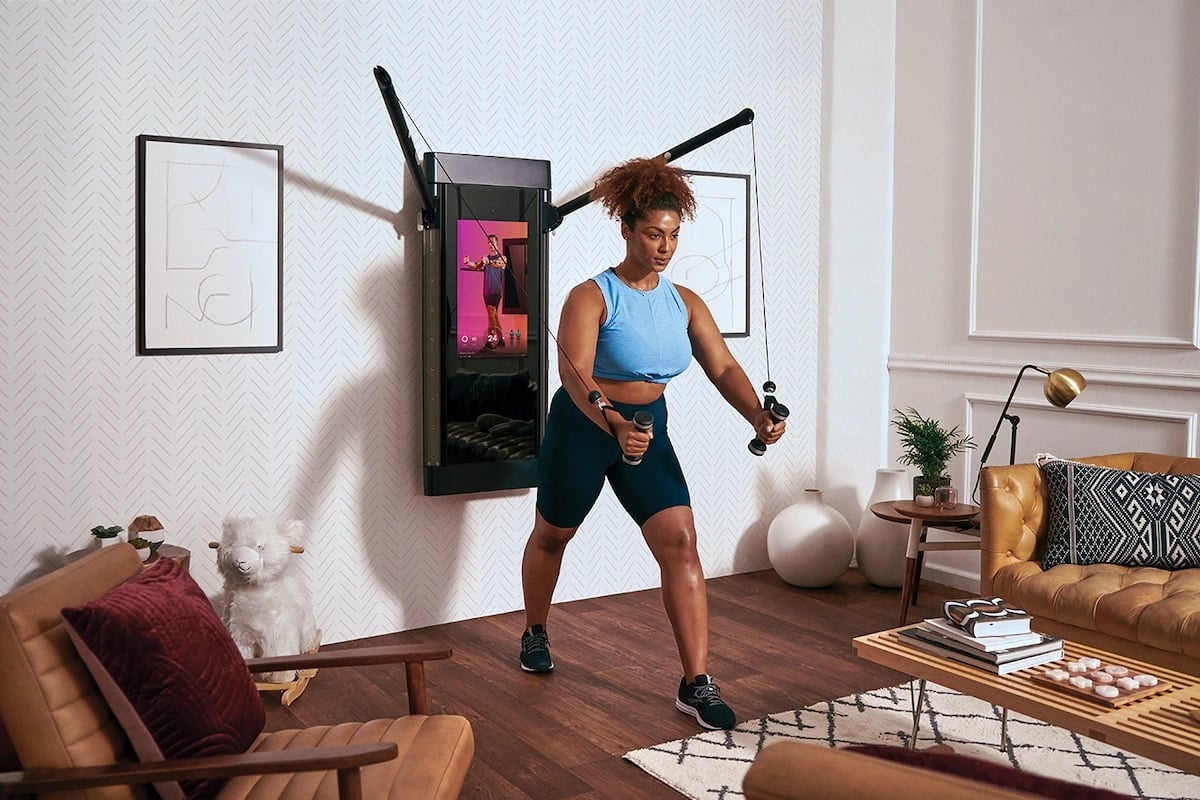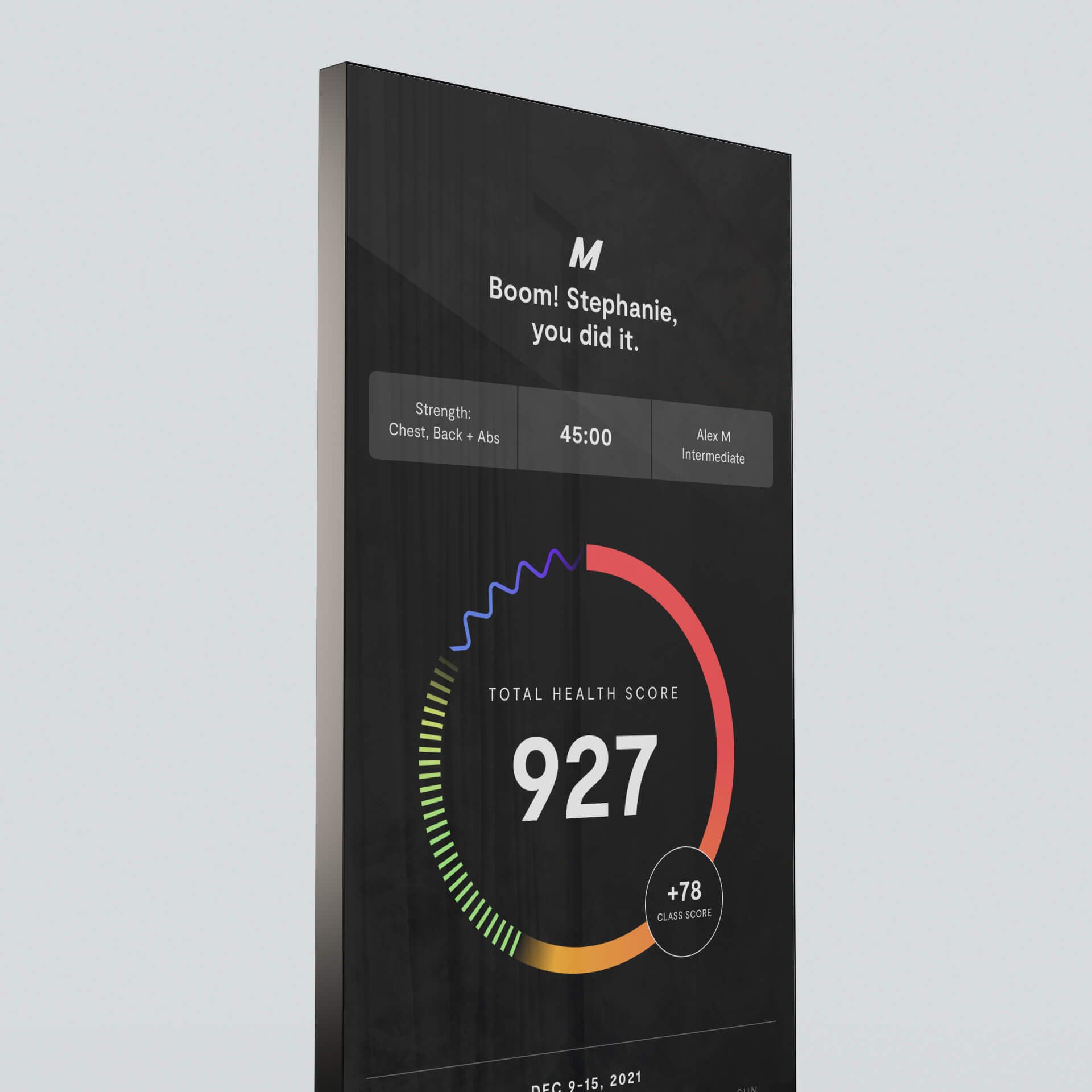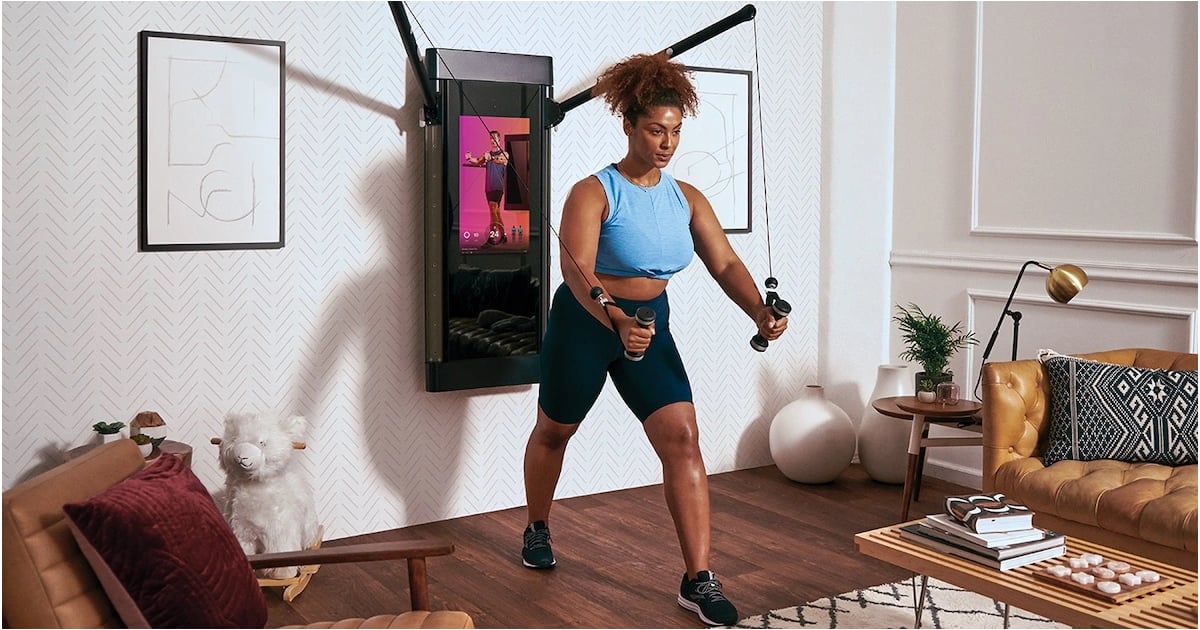 Image Source: tonal.com
Image Source: tonal.com
Thanks to virtual workout classes and advances in at-home equipment, working out from the comfort of your home has never been easier — or more versatile. If you’re looking to maximize your (small) living space or cut down on bulky, loose equipment, now might be a perfect time to invest in a smart home gym like Tonal or Mirror. But figuring out which one is right for you can be tricky, and when you’re making this big of a purchase, you don’t want to take any chances. That’s where this helpful buying guide comes in.
On the surface, Tonal and Mirror may look similar, but they’re actually quite different. For starters, Mirror is a reflective smart screen that allows you to virtually pop into a wide variety of workout classes, while Tonal places an emphasis on strength and resistance training. So, while the machines may be viewed as competitors, neither is better than the other — it all depends on what you want to get out of your personal home gym. Before you add either one to your cart, keep reading to learn what sets Tonal and Mirror apart.
Mirror vs. Tonal: Aesthetics and Footprint
Beloved for its sleek, slim design, Mirror doubles as a virtual home gym and a mirror. Owners have the option of either mounting Mirror to the wall or standing it upright using the included stand (perfect for renters). Mirror takes up less than two feet of wall space and has very little depth, making it ideal for those working with small spaces.
Tonal also boasts a minimalist and compact design. The wall-mounted machine actually takes up slightly less space than its competitor, but the company recommends a workout zone spanning seven feet of wall and floor space, as the machine’s arms can be adjusted horizontally and vertically to support 200 different body movements. Aesthetically, Tonal looks more like a TV when it’s powered down than a piece of decor. While it isn’t as seamless in that way, the machine’s cool features easily outweigh its frame.
 Image Source: mirror.co
Image Source: mirror.co
Mirror vs. Tonal: Pricing
Mirror customers can shop from four different packages, all of which range in price and add-on equipment. Mirror Basic ($1,495) comes with the Mirror itself, a stand, and a lens cap to cover the camera when you aren’t working out. For $200 more, you can opt into the Mirror Essentials package, which includes a Bluetooth heart-rate monitor as well as Lululemon workout equipment: a mini foam roller, yoga block, and reversible mat. Additional gear (like a pair of weights) is included in the Mirror Pro package for $1,795. Mirror also offers a family package — equipped with two sets of fitness equipment — for $2,045.
All Mirror packages offer free delivery and installation. However, they also require a monthly membership, which runs $39 per month with a minimum 12-month commitment. This grants you, and up to five other profiles, access to unlimited workout classes. If you’re on a tight budget, consider opting for the Mirror Basic package and sourcing your own fitness gear.
Unlike its competitor, Tonal ($2,995) is listed at a fixed price. You’ll also pay a delivery and installation fee, which varies based on your location. While Tonal’s Smart Accessories bundle — which includes smart handles, a smart bar, a rope, a bench, a roller, and a workout mat — is optional, it’s strongly recommended for those who plan to utilize Tonal’s digital weight workouts, which are the machine’s main selling point. The bundle costs an additional $495.
Upon device activation, Tonal customers are locked into a membership. This runs $49 per month with a minimum 12-month commitment and includes unlimited classes.
Mirror vs. Tonal: Workout Classes
Sold as a nearly invisible interactive home gym, Mirror offers unlimited live and on-demand workout classes across 50 categories, including kickboxing, dance cardio, arms and abs, and restorative yoga. On the Mirror app, users can filter classes by type, difficulty, length, and instructor. Those interested in one-on-one training can schedule virtual training sessions for $40 per session. During these workouts, the Mirror’s camera allows trainers to see your form and technique and provide feedback. This feature can also be turned on during live workout classes.
While Tonal also offers a variety of workouts, it’s best known for strength and resistance training. The interactive touchscreen display allows users to peruse both live and on-demand workouts led by trainers, spanning genres and areas of focus, such as full body, lower body, upper body, or core.
Tonal’s biggest feature is its digital weight system and adjustable arms, which support 200 upper- and lower-body movements and up to 200 pounds of resistance. Thanks to Tonal’s dynamic weight and resistance technology, every workout is specifically tailored to fit your performance needs and goals. Struggling to get through your last rep? Tonal can sense that and will bring down the weight to help prevent strain or injury. It will also tell you if your form needs correcting — and give you specific feedback for fixing it.
Ultimately, you have to keep your goals and preferences in mind when choosing between Tonal and Mirror. If you enjoy strength and resistance training, Tonal may be your best bet. However, if you’re easily bored with lifting weights and consider yourself more of a studio-class person, you’ll probably get more use out of Mirror. If you’re on the fence, both brands offer in-person demos. You can try Mirror in person at select Lululemon stores and Tonal at select Nordstrom locations.
